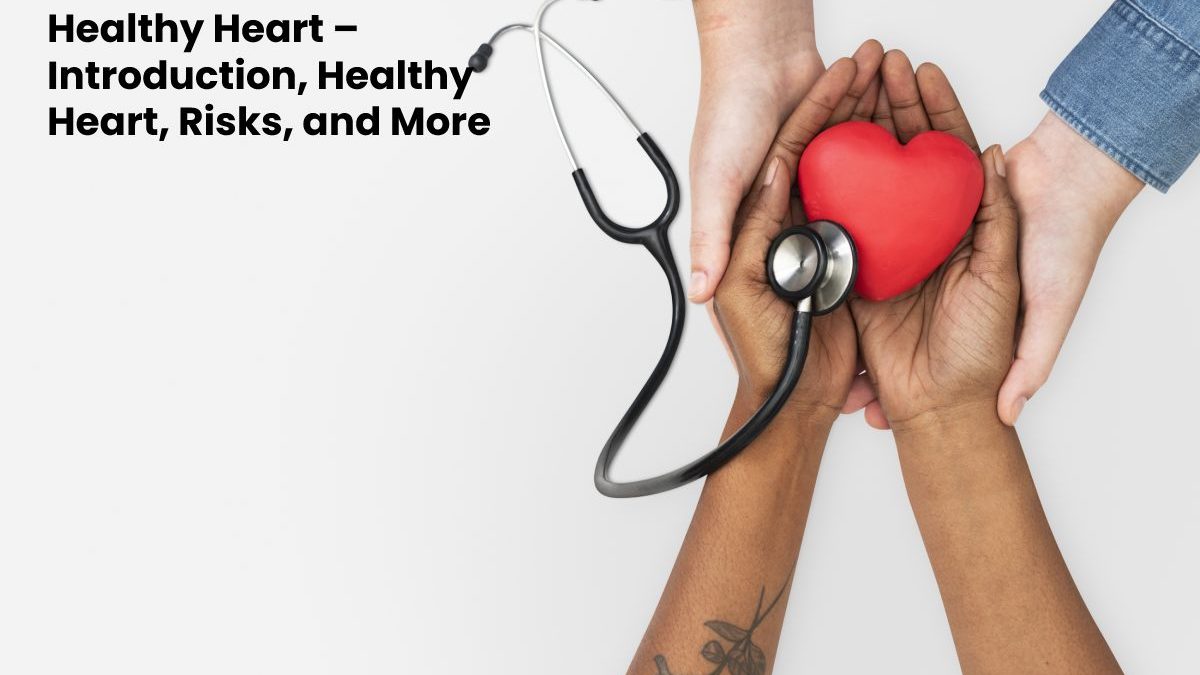Table of Contents
Introduction
Healthy Heart – The human heart can be related to a car engine: both power supplies keep the body moving. The core acts as a pump that carries blood to the body’s organs, tissues and cells. Plasma pumped by the heart supplies oxygen and nutrients to each cell and picks up carbon dioxide and waste products formed by those cells. But if blood flow to the heart slows or stops or beats rhythmically, it can be life-threatening. Like a car engine, how the heart is treated will determine how long and how it will function. “Many individuals take better care of their car than their bodies. They worry about changing the oil, doing a periodic tune-up, and using the appropriate gasoline,” says the founder of the Texas Heart. But when it comes to their forms, they eat high-fat, high-salt foods, smoke, and don’t exercise regularly.
Medical advances cannot eliminate cardiovascular diseases, and good health largely depends on the people. Cardiovascular diseases are those that touch the heart or blood vessels. However, steps have been taken to educate the public about its causes and prevention. About 2,200 people a day with cancer, joint, and chronic respiratory disease, and accidents combined. New studies and treatment methods have linked deaths from heart disease, and the numbers have reduced but not the number of people affected.
Healthy Heart – Risk Factors and Lifestyle
Certain factors significantly affect a person’s chances of developing heart disease. These are called risk factors; some can measure, but others cannot. Although it is not possible to control for risk factors such as gender, age, and heredity, it is possible to modify lifestyle-related risk factors to prevent or delay the onset of heart disease, with medical studies showing that reducing heart disease Possible lower risk by eating a diet low in fat, salt, and cholesterol, not using tobacco of any kind.
Healthy Heart – Exercise
Exercise or lack of exercise plays an essential role in our health. Studies show that we should do aerobic exercise (such as brisk walking, jogging, or cycling).
To strengthen our hearts. In addition, medical studies show that a total of 30 minutes per day in short bouts of physical exercise is as beneficial to health as 30 minutes of continuous activity. One of the best things we can do to improve our health is to eat low-fat foods and exercise regularly. Exercise burns calories, lowers appetite, blood pressure, and stress, and increases HDL.” (the “good cholesterol”) level rises. It also improves the figure. And makes us feel better. It’s almost too easy.
The level of HDL (good cholesterol) increases. It improves the mother figure and makes us feel better, and it’s almost too easy.”
Healthy Heart – Diet
It is also possible to reduce cardiovascular risk with some sensible dietary changes. Heart-healthy habits include limiting daily salt intake to less than 2,300 milligrams of sodium.
Diet must mainly consist of fruits, vegetables, grains, lean meats, and fish. Reducing consumption of heavy (especially saturated fat) and cholesterol (fatty red meat, whole milk, cheese made from whole milk, eggs, cream-based dishes, and desserts that contain a lot of fat) is recommended.
Eating a heart-healthy diet can help you lessen your blood cholesterol levels by 5 to 10 percent, that is, by eating more dietary fiber and less fat and cholesterol.
When we eat high-fiber foods, we feel complete. And eat fewer nutrients that are high in calories, fat, and cholesterol.
Healthy Heart – Alcohol Consumption
Alcohol consumption also affects the heart. Medical studies show that daily consumption of alcohol in moderate amounts protects against heart disease and heart attack. According to experts, moderate consumption is an average of one or two drinks per day for men and one beverage per day for women. 1.5 (44 ml) of 80-proof spirits (e.g. scotch, bourbon, vodka, gin, etc.) to a drink. One (30 ml) of 100-proof spirits is four (118 ml) of wine or 12 (355 ml) of beer.
Such as high blood pressure, stroke, irregular heartbeat, and cardiomyopathy (heart muscle disease). In addition, a typical drink contains 100 to 200 calories. Calories from alcohol often increase body fat, which can increase heart risk. If you don’t drink, don’t start.
Healthy Heart – Stress
Stress is another factor that can affect the heart. People with heart disease often report heart pain during emotionally stressful situations. You are also more likely to have a heart attack during stress, as your heart races and your blood pressure rises. When this happens, the heart wants more oxygen.
Stress can also damage arteries due to increased hormone production and blood flow during the stress response. As the walls of the arteries heal, they increase in thickness, thus facilitating the accumulation of plaque, which narrows the artery. Researchers believe that stress can make heart disease worse.
Conclusion
The heart is the engine of our body. If we take care of this by controlling the risk factors, we will be able to reduce the leading causes of death worldwide by a very high percentage. It is a goal set by the World Heart Federation, which hopes that by 2025 we will be able to reduce the number of premature deaths from heart disease by 25%.

